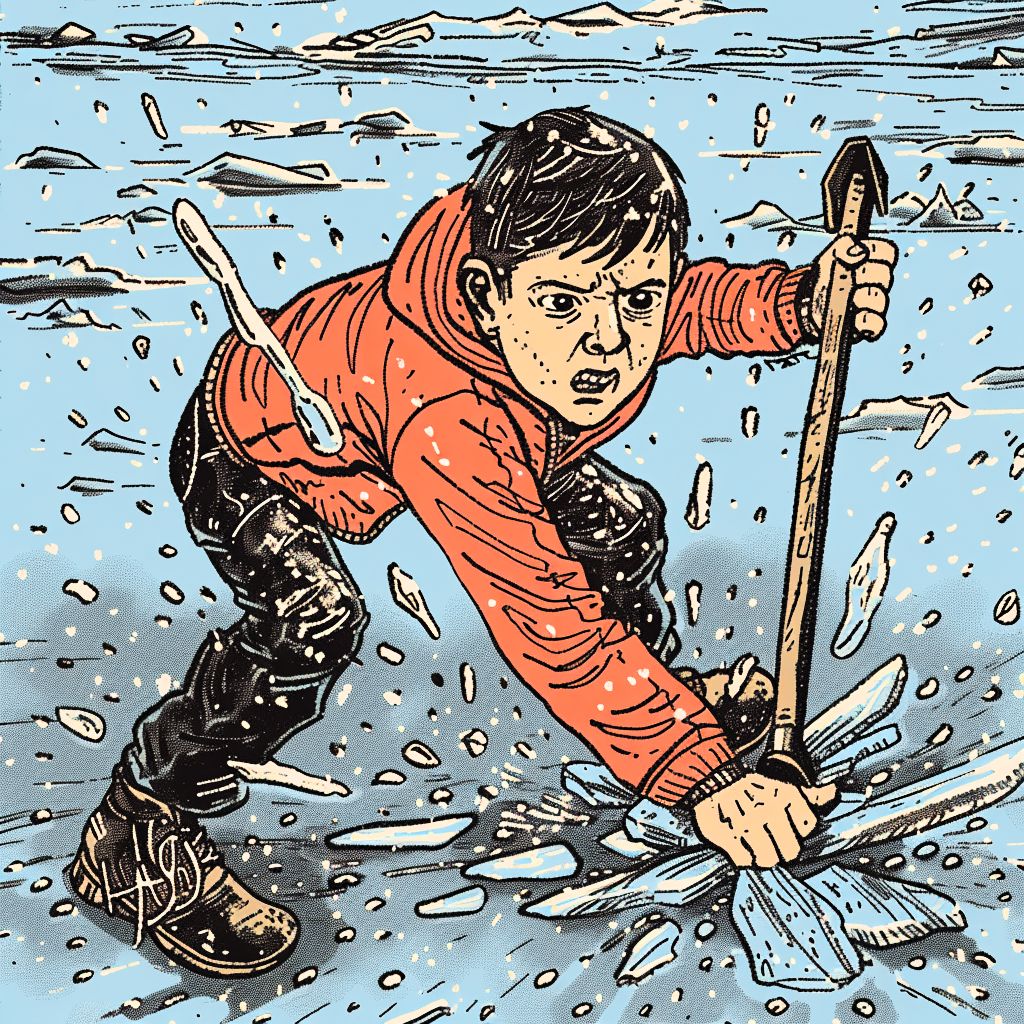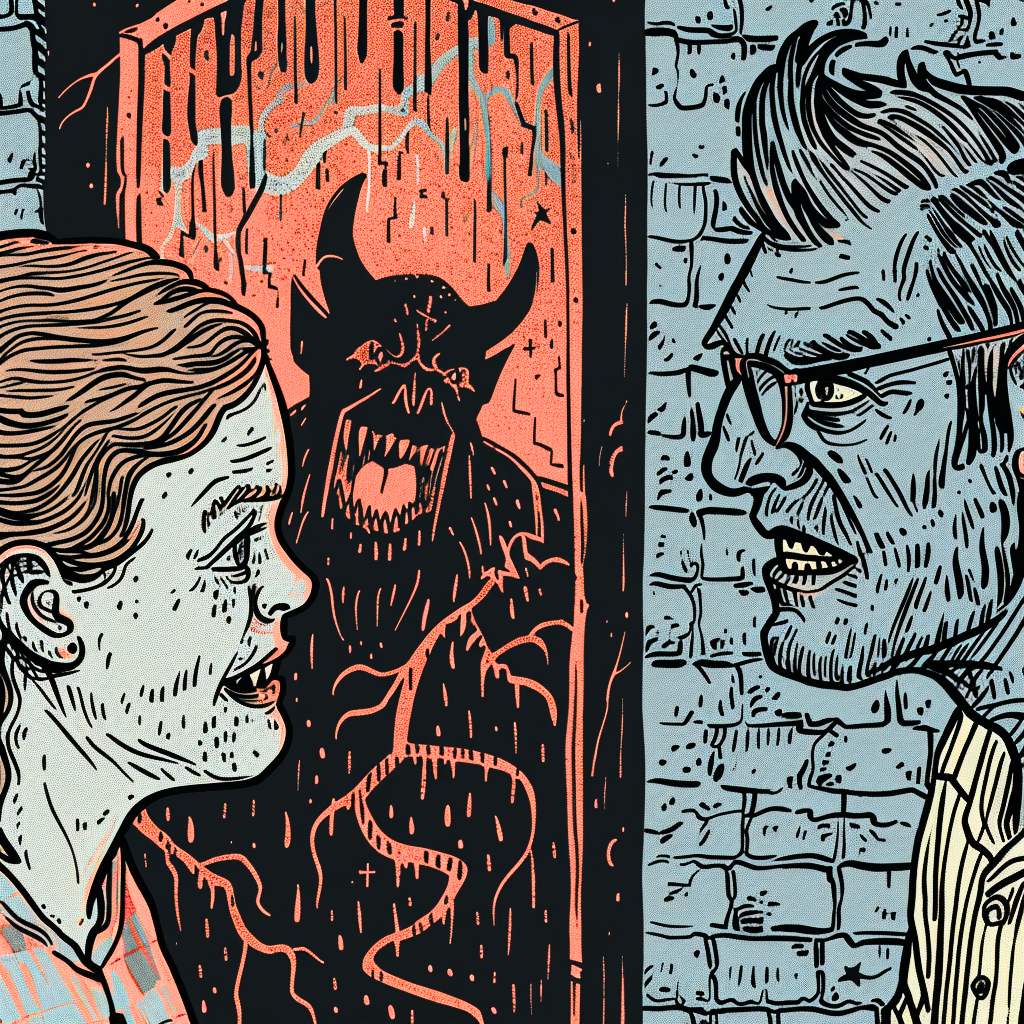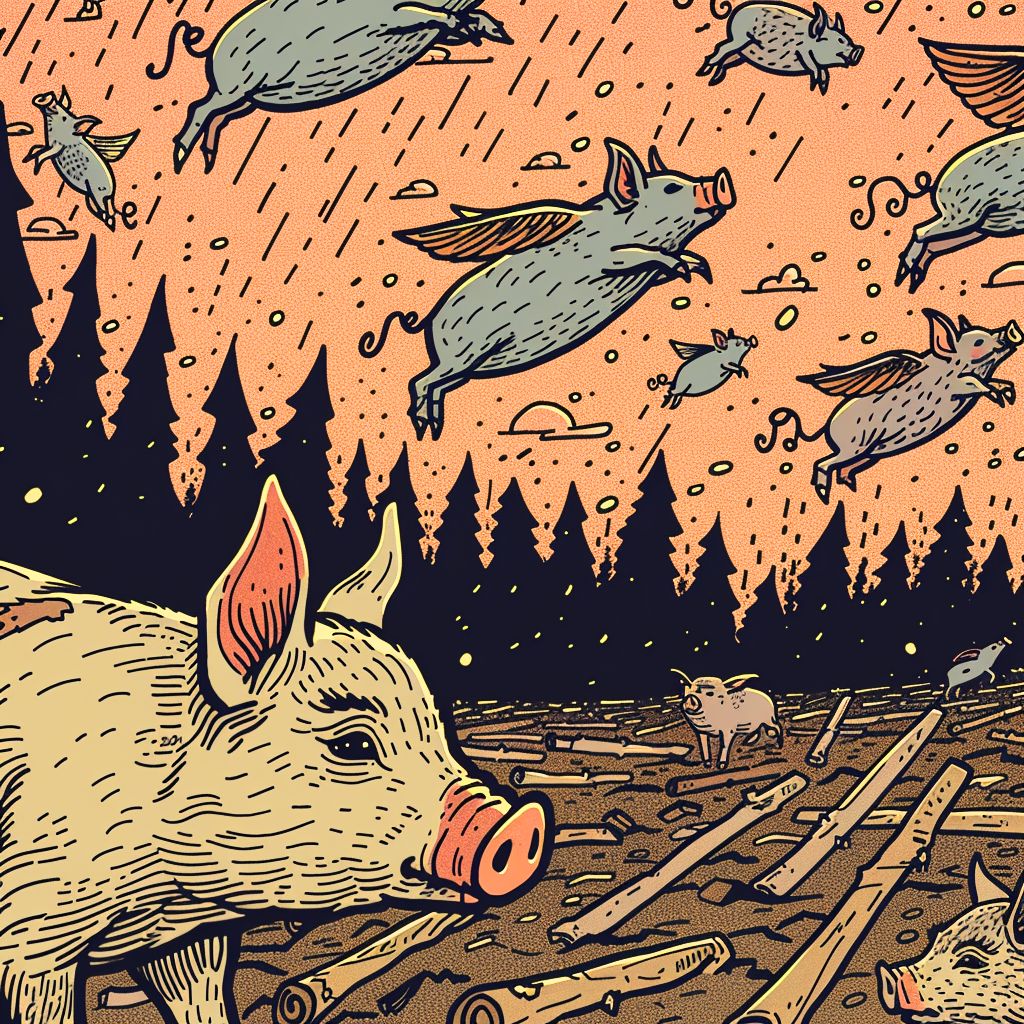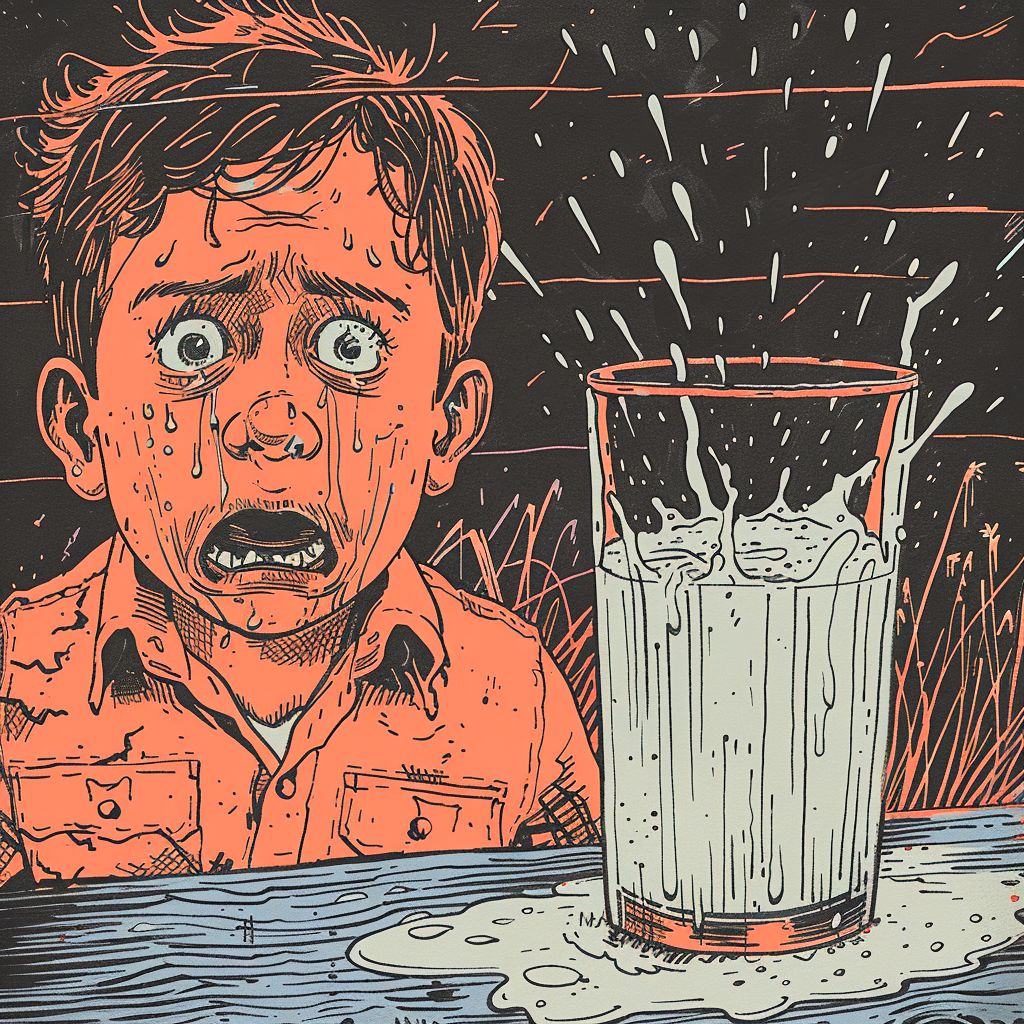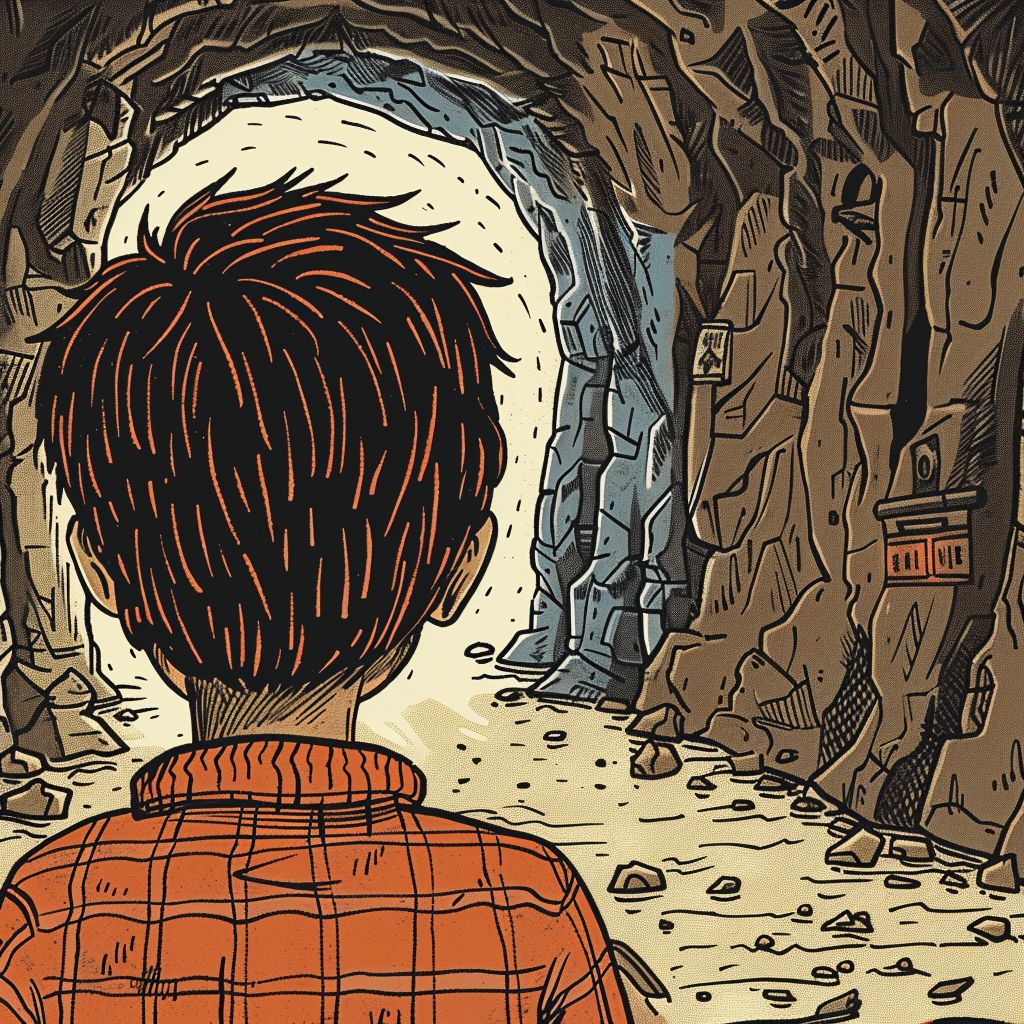Welcome to the whimsical world of idioms, where “seeing the light at the end of the tunnel” has nothing to do with spelunking, and being “on cloud nine” is a state of mind, not a weather report. Ever felt like you’re “barking up the wrong tree”? Join the club—we’ve all wandered into that strange forest at some point.
Get ready to unravel the mysteries of phrases that make English a delightfully unique language to navigate.
We’re about to quickly jaunt through the idiom jungle, dodging falling clichés and leaping over hyperboles.
By the end, you might just find yourself chuckling at the realization that speaking plainly is not always our piece of cake. Let’s decode these colorful expressions together, shall we?
1. Break the Ice
The idiom “Break the Ice” is your go-to power move in social gatherings, networking events, or any scenario that’s as stiff as a boardroom meeting without coffee. Picture yourself at a party where the silence is so thick, you could cut it with a knife—or, in this case, break it with an ice pick.
Originally from the nautical world, where ships literally had to break the ice to move forward or reach their destination, this phrase has navigated its way into our everyday language with a slightly warmer reception. It’s all about shattering those initial barriers of awkwardness and diving into the conversation pool, making everyone feel a little more at ease.
Think of it as the conversational equivalent of a superhero landing—it’s bold, brave, and instantly makes you the center of attention (in a good way). Whether it’s a witty comment, a shared observation, or a friendly question, the goal is to melt away the frosty formalities and get to the good stuff: genuine human connection.
And let’s be honest, who hasn’t been in a situation where the air was so tense that you wished for a verbal icebreaker to sail in and save the day? This idiom celebrates the courage to be that person who turns awkward silence into comfortable chatter.
Example 1: At the start of the team building event, Lisa decided to break the ice by sharing her most embarrassing work story, which had everyone in stitches.
Example 2: Seeing a new coworker standing alone during lunch, Derek walked over to break the ice, asking about his favorite music.
2. Barking Up the Wrong Tree
Have you ever found yourself stubbornly insisting you’re right, only to discover you’ve been pointing fingers in the wrong direction? Then you’ve been “Barking Up the Wrong Tree.” This idiom paints a picture of a dog fervently barking at a tree, thinking its chase has ended with the quarry treed, when in fact, the cunning cat (or squirrel, for the purists) is smirking from the branch of a neighboring tree.
Originating from the days of hunting dogs and their sometimes misguided pursuits, this phrase has scampered into our modern lexicon to describe misdirected efforts or misunderstandings. It’s the universe’s comical way of reminding us that conviction without evidence might just lead to a wild goose chase – or in this case, a wild cat chase.
It’s perfect for those moments when you’re so off-base, you might as well be in a different ballpark. Whether it’s accusing someone without all the facts, pursuing a solution that won’t fix the problem, or simply being on the wrong track, this idiom is a lighthearted nudge to reassess and redirect.
But fear not, this isn’t about scolding; it’s about the chuckle-worthy realization that maybe, just maybe, it’s time to consult a map or ask for directions in the metaphorical forest of life.
Example 1: After hours of arguing that his phone was stolen, Jeff found it in his car’s glove compartment, realizing he had been barking up the wrong tree.
Example 2: The team spent weeks developing a new software feature, only to learn the client wanted something else entirely. They were barking up the wrong tree.”
3. A Piece of Cake
Have you ever breezed through a task so effortlessly that it felt like you were, metaphorically, just eating dessert? That’s when something is “A Piece of Cake.” This idiom is the sweet, sweet way of saying that a task was incredibly easy or required minimal effort—just like enjoying a delicious slice of cake. No sweat, no tears, just pure, sugary satisfaction.
The origins of this phrase are a bit crumbly and hard to trace back to one particular moment in time. However, it’s widely agreed that it comes from the simple pleasure and ease of eating cake—because, let’s face it, when has eating cake ever been difficult?
It’s the perfect expression for those moments when everything just falls into place perfectly, and you’re left wondering why you were even stressed in the first place. From acing a test without breaking a sweat to fixing a computer issue with a few clicks, “A Piece of Cake” sums up those triumphs with a cherry on top.
So next time you nail something without so much as a hiccup, remember, you’re not just skilled—you’re experiencing life’s tasks as if they were pieces of cake. Bon appétit!
Example 1: Sarah thought she would struggle with the advanced yoga class, but it turned out to be a piece of cake.
Example 2: Everyone warned Jake about the difficulty of assembling the furniture, but to his surprise, it was a piece of cake.”
4. The Best of Both Worlds
Ever felt like you’re living the dream because you’ve managed to snag the advantages of two seemingly opposite choices? That’s when you’re enjoying “The Best of Both Worlds.” This idiom is the life hack for those who’ve figured out how to have their cake and eat it too (mixing metaphors, but you get the drift). It’s about reaping the benefits of two different situations without the usual compromises or trade-offs.
Picture this: You’re working a job that fuels your passion and pays well, or you’re balancing the peacefulness of country living with the excitement of city nightlife on weekends. It’s like managing to catch every green light when you’re already late—it’s unexpectedly smooth sailing.
Originating from a time when making a choice meant giving up on the other option, this phrase now celebrates the win-win scenarios we occasionally stumble upon or cleverly orchestrate in our lives. It’s a high-five to those who manage to blend the best parts of two worlds, creating their own perfect hybrid version.
So next time you find yourself enjoying the perks of both sides without the downsides, remember, you’re not just lucky—you’re living “The Best of Both Worlds.” It’s a reminder that sometimes, the universe conspires to give us the perfect blend of experiences.
Example 1: By working remotely from her cottage near the beach, Jenna realized she had the best of both worlds: the tranquility of nature and her career in tech.
Example 2: Having a hybrid car meant enjoying the best of both worlds for Alex: fuel efficiency for long drives and eco-friendliness for city commutes.”
5. Speak of the Devil
Ah, “Speak of the Devil”—the perfect phrase for that uncanny moment when you’re gossiping about someone, and they magically appear as if summoned. Originally, this idiom carried a bit more of a superstitious edge, implying that mentioning the devil could actually bring him to you. Over time, though, it’s become a lot less about evil spirits and more about the humorous timing of someone showing up right as you’re talking about them.
It’s like the universe has a sense of humor, giving us a playful nudge and a wink by timing someone’s entrance so impeccably. Whether you were singing their praises or, let’s be honest, doing a bit of harmless venting, “Speak of the Devil” turns a potentially awkward situation into a laughable coincidence.
The idiom serves as a cheeky acknowledgment of the person’s sudden presence, lightening the mood and, hopefully, warding off any real awkwardness. It’s one of those sayings that reminds us of the playful and interconnected nature of human relationships, where everyone’s just a conversation away from popping into the scene.
So next time you’re caught in the act of mentioning someone, and they appear, just smile and say, “Speak of the devil!” It’s a charming way to bridge the gap between coincidence and fate.
Example 1: While discussing whether Tom would attend the meeting, he walked into the room, prompting Maria to say, “Speak of the devil, here he is!”
Example 2: They were just reminiscing about old college friends when Jenny suddenly bumped into them at the café. “Speak of the devil,” she laughed, joining their table.”
6. See Eye to Eye
Ever been in total agreement with someone, where your thoughts align so perfectly it’s almost eerie? That’s when you “See Eye to Eye.” This idiom is the verbal handshake of mutual understanding and agreement. It’s when you and another person (or group) are on the same wavelength about ideas, opinions, or plans, without any significant disagreement.
The beauty of seeing eye to eye with someone isn’t just about agreeing on where to go for lunch; it’s about those moments when core beliefs and values align, creating a sense of unity and shared purpose. It’s like finding a kindred spirit in the vast sea of diverse opinions—a reminder that common ground isn’t as rare as we might think.
Originating from the literal act of looking directly into another’s eyes, which is often a sign of honesty and agreement, this idiom celebrates the harmony of concordant views. It’s the antidote to the all-too-common head-butting of differing opinions, serving as a beacon of agreement in a sea of debate.
So, the next time you find yourself nodding along with every word someone says, basking in the glow of unanimous agreement, remember, you’re not just agreeing—you’re seeing eye to eye. It’s a testament to the power of understanding and the bonds it can forge between people.
Example 1: Despite their initial differences, the committee members finally saw eye to eye on the new policy, ensuring a unanimous vote.
Example 2: After a lengthy discussion about movie preferences, they discovered they both loved old Westerns, seeing eye to eye on the best film genre.
7. The Ball is in Your Court

Hey fellow Linguaholics! It’s me, Marcel. I am the proud owner of linguaholic.com. Languages have always been my passion and I have studied Linguistics, Computational Linguistics and Sinology at the University of Zurich. It is my utmost pleasure to share with all of you guys what I know about languages and linguistics in general.


